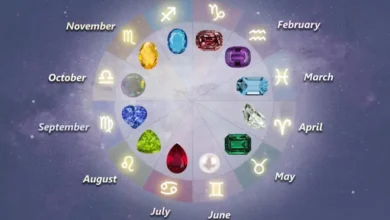Ziyaarat Ashura ‘s Best Miracles

Importance and the Traditions of Ziyaarat e Ashura
Except ziyarat e Ashura No other Ziyaarat has this level of eminence and superiority. What could be greater merit for this Ziyaarat than to be the
Read here : ziyarat e Ashura
“Word of Allah” (Hadith Qudsi)?
Safwan (r.a.) said. Hazrat Jibraeel (a.s.) told the Holy Prophet (s.a.w.a.) about this Ziyaarat on God’s command. We will talk more about this incident at the end of this article. For now, it’s important to know that this Ziyaarat is Hadithe Qudsi . It came to Imam Baqir (a.s.) through His noble ancestors.
Later in this piece, we’ll talk about the importance of Ziyaarate Ashura. For now, let’s look at some events that show how important Ziyaarate Aashoora.
Ziyaarate Ashoora Means
The great and pious jurist, Marhoom Shaikh Jawad B. Shaikh Mashkoor, was a leading jurist of Najaf who died at the age of 90 years in 1337 A.H. He is buried next to his father in a room.
This great scholar dreamt on the night of 26 Safar 1332 A.H in which he saw Hazrat Izraeel – the angel of death (a.s.). He did salaam to the angel of death. And asked him from where he was coming. The angel of death replied ‘I am coming from Shiraz after having seized the soul (Ruh) of Mirza Ibrahim Mehlaaki.’ Shaikh asked him ‘In what condition is his soul in Barzakh?’
The angel of death replied
‘He is residing in the most beautiful garden and is in the best of the conditions. Allah has appointed 1,000 angels at his beck and call.’
Shaikh asked him ‘For which action has he received such a great reward – for his high level of knowledge? Or for the large number of students he had trained?’ The angel of death replied, ‘For none of these reasons’. Shaikh asked, ‘Then for leading the congregational prayers and explaining the religious laws to the people?’ The angel of death replied in the negative.
So Shaikh asked, ‘Then on what basis did he receive such a great position?’ The angel of death said ‘For reciting Ziyaarate Aashoora.’
Mirza Mehlaaki recited Ziyaarate Aashoora regularly
He recited regularly in the last 30 years of his life. And if due to an illness or any other reason, he was unable to recite the Ziyaarat, then he would appoint a representative to recite the Ziyaarat on his behalf.’
The next morning, Shaikh Jawad went to Ayatullah Mirza Mohammed Taqi Shirazi and told him about his dream. When he heard this, Ayatullah Mirza Mohammed Taqi began to cry. When people asked him why, he said, “Mirza Ibrahim Mehlaaki was a pillar of jurisprudence, and he has left the world.” People said,
“But this news was just a dream, and we don’t know.
This event shows how important it is to say Ziyaarate Aashoora every day.
Ziyaarate Ashura Effects and advantages
Shaheed-e-Mehraab, Ayatullah Dastghaib Shirazi (r.a.) narrates an incident from Ayatullah Uzma Shaikh Abdul Kareem Haiyeree (r.a.), the founder of the Hauz-e-Ilmiyyah in Qum. Janab e Haiyeree (r.a.) narrates,
‘I was residing in Samarrah to pursue religious studies. Once, the city was struck by a deadly plague. Scores of people were dying every day. During those days, a group of religious scholars had gathered at the house of our teacher late Syed Mohammed Fesharki (r.a.)
Everyone said,
“Yes, of course, we’ll do what you say.”
Marhoom Mirza (r.a.) then said, “Tell every Shia of Samarrah to recite Ziyaarate Aashoora for the next ten days and to give the reward of the Ziyaarat to the soul of the mother of Imam-e-Zamana (a.t.f.s.), Janabe Nargis Khatoon (s.a).
- This event shows not only the benefits and results of reading Ziyaarat e Aashoora but also how important the Ziyaarat itself is.
People usually say Ziyaarat e Aashoora in honor of Imam-e-Zamana (a.t.f.s.). This event shows how important Imam’s (a.t.f.s.) mother, Janabe Nargis Khatoon (s.a.), was.
- The Sunnis are very against saying Ziyaarate Aashoora, but by reciting it, even they admitted that the Ahle Bait (a.s.) are the “Dispellers of disasters.”
Ziyaarate Ashura Imam-e-Zamana (a.t.f.s.) comes first.
In his letters and sayings, Imam-e-Zamana (a.t.f.s. ), the ruler of the time, the friend of God, and the leader of the world made it clear how important it is to recite Ziyaarate Aashoora.
In his masterpiece, Mafaateeh al-Jenan, the pillar of traditionalists, Shaikh Abbas Qummi (r.a.) wrote about an incident from his teacher, Janab Mirza Husain Tabarsi (r.a.), also known as Mohaddis Noori (r.a.). We won’t tell the whole story, but we will talk about the part where Imam-e-Zamana (a.t.f.s.
Janab Syed Ahmed bin Syed Hashim bin Hasan Musawi Rashty:
He was a trader from the city of Rasht. He says,
“I left Rasht with the intention of going to Haj and came to the house of Haji Safarali Tabrezi. I was a little worried because there was no caravan scheduled for Haj at that time. When I saw that another friend, Haji Jehad Jaludar Isfehani, had packed his bags and was about to leave for Makkah. We started the journey together but soon were caught by a storm. There was no way to come out, suddenly Imam e Zamana appeared in front of us with the light of noor.
Imam-e-Zamana (a.t.f.s.) says, “Recite Naafelah Shab.” He then says, “Recite Ziyaarat Jaameah,” and then “Recite Ziyaarate Ashura.” Syed Rashty didn’t know Ziyaarat-e-Jaameah or Ziyaarate Ashura by heart, but as soon as Imam-e-Zamana (a.t.f.s.) helped Syed Rashty get to his destination. On the way, he asked him rhetorically, “Why don’t you say the Naafelah prayers?” Then he (a.s.) said, “Naafelah, Naafelah, Naafelah!”

This shows how important Ziyaarate Ashura is the fact that Imam-e-Zamana (a.t.f.s.) emphasized the regular recitation of Ziyaarate Ashura and Ziyaarat-e-Jaamea
Ziyaarate Ashura: Stopping the punishment
- Another story shows the importance of Ziyaarate Aashoora. The first story shows the benefit of Ziyaarate Aashoora for the person who says it regularly. The second story shows a really strange benefit of Ziyaarate Aashoora. It shows that the person who says Ziyaarate Aashoora becomes a reason for the forgiveness of sins that other people have done.
Marhoom Mohaddis Noori (r.a.) narrates an incident from Al-Haaj Mulla Hasan Yazdi, who was a pious and virtuous individual and was the caretaker of the shrine of Ameerul Momineen (a.s.).
He was very religious and was always preoccupied with worship and Ziyaarat. Mulla Hasan, in turn, narrates about Mohammed Ali Yazdi who too was a very respectable, devout, and virtuous person. He too would always spend his time in acts of worship and in matters related to the Hereafter.
Janab Mohammed Ali
He used to spend his nights in worship in a particular place in Yazd. That place was the “Mazaar”. He had a neighbor who was his good friend. Both of them had grown up and studied together.
His friend started doing the work of the “Ghassari” (tax collection). A few years later this friend died. One month after his friend’s demise, Janab Mohammed Ali , saw him in a dream.
His friend was looking very handsome and smart. Janab Mohammed Ali asked him ‘I very well know the kind of business in which you were involved. There was nothing in that business that you did hide or openly that would merit this great reward that you have received.
In fact, nothing except punishment could be expected from the kind of work you used to do. Then how did you receive this great position and reward?’ The friend replied ‘You are absolutely right. In fact, from the time I died, till yesterday I was involved in a painful chastisement. But yesterday, the wife of Ustad Ashraf Haddad (blacksmith) died and was buried a few meters away from here.
Last night Imam Husain (a.s.), came to visit her thrice. On the third visit, He (a.s.) ordered that the punishment from the entire graveyard be removed. Hence, now you see me living a life of ease and comfort.’
Aqa Mohammed Ali
He woke up with a start and didn’t know who was the Ashraf Haddad or where he lived. And went to the iron market, asked about him, and went to his house. He asked about his wife’s good deeds in her life. He said that she used to say zayaarat e ashoora every day. Only this deed was permanent in her life.
“O Allah, honor my grave by making it a place where Imam Husain (a.s.) also visits. O Allah, give me the strength to say Ziyaarate Aashoora often.”
Ziyaarate Ashura: According to customs
The above events show the good things about Ziyaarate Ashura and how important it is, both in this world and the next. Now let’s look at the customs that show the good things about reciting Ziyaarate Ashura and back up the above events.
Alqamah bin Mohammed ibn Hazrami (r.a.) says, “I asked Imam Baqir (a.s.) to teach me a dua that I should repeat on the day of Ashura after reciting the Ziyaarat of Imam Husain (a.s.) from near his (a.s.) grave or from a distance.”

“O Alqamah, when you want to recite the Ziyaarat of Imam Husain (a.s.), you should first pray two units of prayers, then face the grave of Imam Husain (a.s.) and say “Salam” and “Takbir” while pointing at it. Then you should recite this Ziyaarat (Ziyaarate Ashura). If you do this, it will be as
- Allah will make your grade ten million times better.
And this is how you should say the Ziyaarat…’
Then Imam (a.s.) read Alqamah (r.a.) the whole Ziyaarate Ashura.
Imam Baqir (a.s.) says about Zayaarat e Ashoora
“O Alqamah, if you can, say this Ziyaarat every day and send greetings to Imam Husain (a.s.). You will get all the benefits (of the person who says it on the day of Ashura).”
Imam Sadiq (a.s.) about Zayaarat e Ashura:
“Whoever visits the grave of Imam Husain (a.s.) on the day of Ashura or spends the night near His (a.s.) grave, it is as if he (a.s.) achieved martyrdom with Him (a.s.).”
According to Imam Sadiq (a.s.),
“He must go to heaven if he does the Ziyaarat of Imam Husain (a.s.) on the day of Aashoor.
Imam Sadiq (a.s.) talks about how,
“Whoever goes to the grave of Imam Husain (a.s.) knowing that he was rightful Imam is like one who has done the Ziyaarat of Allah on the Arsh.”
Abdullah bin Fazl said. “Once I was with Imam Sadiq (a.s.) when a person from the city of Toos came to see him (a.s.). He asked, “O son of the Messenger of Allah (s.a.w.a.)! What do you have to say for the one who visits the grave of Aba Abdillah (a.s.) on the day of Ashura?” Imam (a.s.) said,
“O Toosi! Whoever visits the grave of Aba Abdillah (a.s.) while he acknowledges that His (a.s.) obedience is obligatory from the side of Allah, then all his past and future sins will not harm him. The prayer he makes to Allah near the grave of Aba Abdillah (a.s.) are prior to all other prayers”
Since we’re talking about the fifth personality of the five holy persons (a.s.), we’ll just tell you about five stories. If you want to learn more about this topic, you can read “Kamil al-Ziyaarat,” “Behaar al-Anwaar vol. 101,” “Thawaab al-A’maal,” and “Shifa al-Sudur.”
“Door of Imam Husain (a.s.)” means “Universal Door of Mercy.”
In the sermon of ‘Shabaniyyah’, the Holy Prophet (s.a.w.a.) while explaining the greatness of the month of Ramadhan says ‘… In it the doors of paradise are open…’ Elucidating this statement of the Holy Prophet (s.a.w.a.), Shaikh Jafar Shushtry (r.a) brings forth a very subtle point.
About the ‘doors of paradise’ He says ‘If you are unable to reach the ‘doors of paradise’ (i.e. you are unable to enter paradise due to your bad actions) then there is yet another door that leads to paradise.
Anyone, wherever he is or in whatever condition he is in, can reach the infinite mercy of Allah through this door. Do you want to know the name of this door so that you can enter paradise?

It is the door of Imam Husain (a.s.). And the way to reach it is through humility and mourning for Aba Abdillah.
The late Ayatullah Al Hajj Sheikh Abdul Karim Haeri (r.a.)
The father of the hawzah ‘Ilmiyyah of Qum said. “When I was studying religion in the city of Samarra. An epidemic in the form of plague spread through the city. And every day, several people die from the disease.
One day, some people from Samarra were at the house of my master, the late Sayyid Muhammad Fisharki (r.a.), when Ayatullah Mirza Muhammad Taqi Shirazi (r.a.) (d. 1338 AH), who was as knowledgeable as the late Sayyid Muhammad Fisharki, showed up out of the blue. During the chat, people started talking about the plague, which had put everyone’s life in danger.
The late Mirza said, “Recite Ziyarat-e-Ashura for ten days and gave the rewards of this recitation to Hazrat Narjis Khatoon (s.a.), the mother of Imam Mahdi (a.t.f.s. ), to prevent from this disaster .”
People at the meeting told the other Shi’ites about the ruling, and they all started reciting the “Ziyarat-e-Ashura.” Over the next few days, it was clear that none of the Shi’ites were dying from the disease, while the non-Shi’ites kept dying. This was so obvious to everyone in the city that some of the non-Shi’ites would ask their Shi’ite friends, “Why do our people keep dying?”
The Shi’ites would say, “We all say “Ziyarat-e-Ashura” by Imam Hussein (a.s.) to protect ourselves from the disease, and Allah keeps the disaster away from us!”
Certainly, engaging in the practice of Ziyarat-e-Ashura is transformative. To begin with, this poignant supplication fosters a connection with the historical events of Karbala, thereby kindling a spiritual bond.
Furthermore, as one recites Ziyarat-e-Ashura, they journey through history, reliving the heroic sacrifices and determination of Imam Hussain (AS). Consequently, individuals are imbued with a purpose, galvanizing them to noble qualities in their own lives.
Additionally, this sacred ritual serves as a bastion of comfort and fortitude for those grappling with adversity, offering solace in times of distress. In sum, Ziyarat-e-Ashura not only connects believers to their faith and heritage but also ignites within them a fervent commitment to justice, infusing their lives with unwavering determination and spiritual fulfillment.
Conclusion:
Ziyarat-e-Ashura , is a powerful practice. That offers numerous benefits to those who engage, in it regularly. Firstly, by reciting this supplication, individuals can gain a spiritual connection to Imam Hussain (AS).
Moreover, through the recitation of Ziyarat-e-Ashura, believers can cultivate awareness of the sacrifices made at Karbala, fostering a deep sense of gratitude. Additionally, this practice serves as a source of inspiration, motivating individuals in their own lives, just as Imam Hussain (AS) did. Furthermore, Ziyarat-e-Ashura provides solace and comfort to those who are facing adversity, offering a sense of inner peace during challenging times.
In conclusion, this powerful act of remembrance not only connects individuals to their faith and history but also empowers them to live virtuous lives filled with purpose and resilience.
Unbelievable Benefits of Ziarat Ashura.
1. Ziyarat Ashura is a source of spiritual power, infusing believers.
2. Furthermore, it serves as a timeless reminder of sacrifice, inspiring courage.
3. Additionally, this sacred practice deepens one’s connection to faith.
4. Moreover, it imparts a profound sense of purpose, urging individuals.
5. In essence, Ziyarat Ashura is a beacon of hope and solace.
6. Consequently, it nourishes the soul.
7. Likewise, it instills a sense of gratitude for the Karbala.
8. Furthermore, it fosters unity among believers.
9. In summary, Ziyarat Ashura is the key to spiritual growth.
10. To put it succinctly, it is a timeless practice for meaningful lives.




